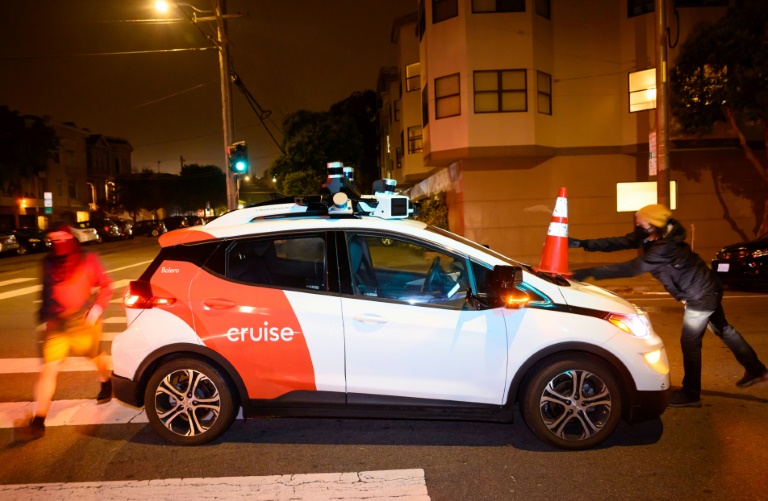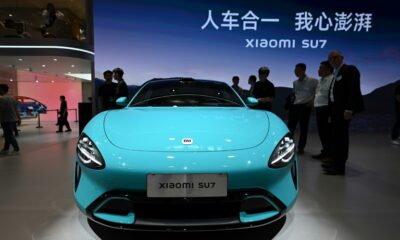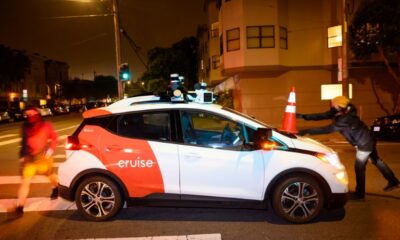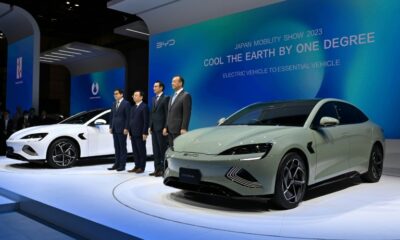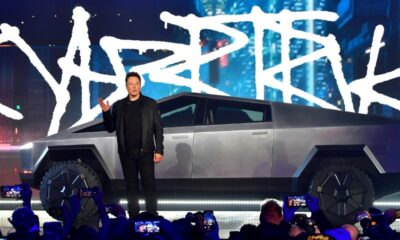California authorities on Tuesday suspended testing of Cruise driverless cars put to work in the US state as robotaxis by General Motors, citing safety concerns following a series of accidents and other problems.
“When there is an unreasonable risk to public safety, the DMV can immediately suspend or revoke permits,” the California Department of Motor Vehicles said in response to an AFP inquiry.
The move came just weeks after a self-driving car operated by Cruise ran over a woman after she was first knocked in front of it by a hit-and-run driver in San Francisco.
Cruise paused operations of driverless autonomous vehicles Tuesday after getting word of the permit suspensions, spokesperson Hannah Lindow told AFP.
“We are devastated by what happened to the victim, and are committed, as always, to continuously improving our safety — including in response to extremely rare scenarios such as this,” Cruise said in an analysis of the accident posted Tuesday.
Video presented to AFP by Cruise showed the self-driving car and another vehicle slightly ahead to its left moving through an intersection with a green light when the second car hit the woman.
“The initial impact was severe and launched the pedestrian directly in front of the AV,” Lindow told AFP, the description conforming to video captured by car cameras.
“The AV then braked aggressively to minimize the impact.”
The Cruise autonomous vehicle stopped atop the woman, while the other car left the scene, video showed.
The severely injured woman was pinned beneath the AV when first responders arrived, according to the San Francisco Fire Department.
Firefighters contacted the Cruise control center to make sure the vehicle was securely stopped, then used heavy rescue tools to lift it and pull the woman out, department officials said in a release.
– Human driver sought –
The driver of the car that initially struck the woman was still being sought, according to Cruise.
The company said its analysis of the accident thus far indicated that had the car that zipped away been operated by autonomous software rather than a human, it would have detected and avoided the pedestrian.
Cruise has remained in contact with investigators and regulators, answering questions and providing video captured by the vehicle, according to Lindow.
California regulators have told Cruise of the steps needed to get permits reinstated for its driverless cars. The suspension does not effect Cruise autonomous cars with “safety drivers” on board ready to take control, according to the DMV.
“We do believe that Cruise has tremendous opportunity to grow and expand,” General Motors chief executive Mary Barra said on an earnings call Tuesday.
“Safety will be our gating factor as we do that. But rest assured, we do have funding plans that will support Cruise’s expansion.”
California authorities in August expanded driverless taxi services in San Francisco, giving the go ahead for operators Waymo and Cruise to compete with ride-share services and cabs.
The California Public Utilities Commission (CPUC) voted to let Waymo, a unit of Google-parent Alphabet, and GM-owned Cruise essentially run 24-hour robotaxi services in San Francisco.
Driverless cars were first introduced in San Francisco in 2014 with a mandatory human “safety driver” on board.
Four years later, California scrapped its requirement that a human driver be in the car.
The CPUC session drew commenters from all sides of the issue, with some calling robotaxis unsafe menaces while others lauded them as solutions to everything from climate change to road rage.
Since their introduction, driverless cars have been involved in several problematic instances, such as becoming stuck in the middle of roadways, blocking bus lanes or even interfering in police or firefighter operations.

 Business4 months ago
Business4 months ago
 Business5 months ago
Business5 months ago
 Events3 months ago
Events3 months ago
 People4 months ago
People4 months ago
 Events6 months ago
Events6 months ago
